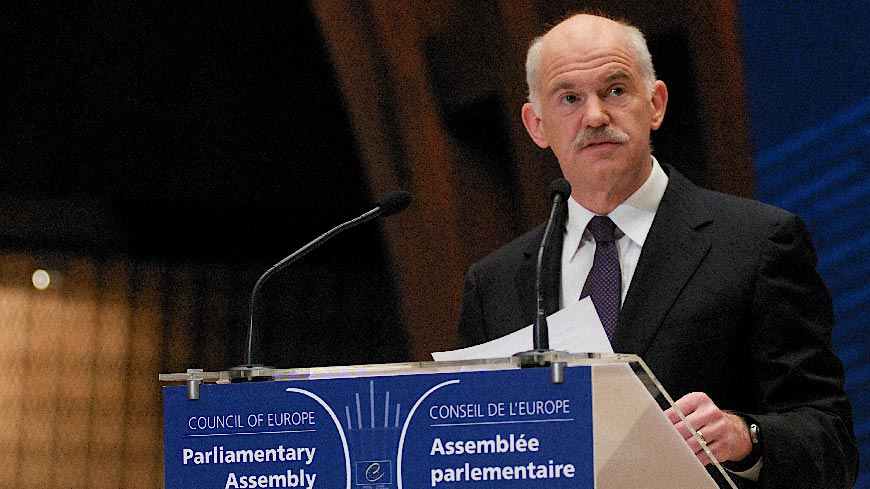Today, I had the honour of addressing the Committee on Political Affairs and Democracy led by the Chair, Mr George Katrougalos (UEL; Greece), in the Parliamentary Assembly of the Council of Europe in conjunction with the preparation of a report by Mr George Papandreou, Greece, on “Supporting a European perspective for the Western Balkans.”
In my intervention, I highlighted the Council of Europe’s current and important work in the region, as well as our close co-operation with the EU, primarily through our Horizontal facility for the Western Balkans and Turkey. I also underlined that the fundamental strength of our approach is its flexibility. We can tailor support to evolving needs, when necessary and requested:
“It is certainly the Council of Europe’s role to support its member states in meeting our common European standards in human rights, democracy and the rule of law.
And it is a strategic priority to work with other international organisations that share our values so that, together, we make progress in the interests of all Europeans.
As such, the European Union is our closest partner and our single largest donor.
So, it is natural that we should work together to promote reform in the Western Balkans:
helping those countries put in place the institutions and policies required to meet our Organisation’s standards and, in turn, better preparing them for the prospect of EU integration.
The assistance that the Council of Europe provides to the Western Balkan states’ national authorities is based on the recommendations of our monitoring and advisory bodies. This includes the Venice Commission on very specific Constitutional issues.
And the technical co-operation that we offer on that basis is unique.
To deliver it, in addition to our expertise, we benefit from the EU’s political and financial support.
Our most important work in the region is outlined in our joint programme:
The Horizontal Facility for the Western Balkans and Turkey.
Our Programme covers four main thematic areas:
- Ensuring justice;
- The fight against corruption and organised and economic crime;
- Anti-discrimination and the protection of the rights of vulnerable groups;
And, last but not least:
- Freedom of expression and the media.
These are complemented by several bilateral and regional programmes funded by the EU and individual donor countries.
The implementation of the Horizontal Facility, and the reforms we promote through it, certainly rely on political will. Not just from national authorities, but others – including parliaments – whose input is required for passing legislation, supervising and implementing reform, and ensuring the execution of judgments from the European Court of Human Rights.
The sum of our co-operation projects and programmes is presented in one, very useful document – an Action Plan (AP), I explained. Prepared, discussed and negotiated on the basis of consultations with relevant national authorities and thereafter discussed and agreed in a CM Rapporteur-group before it is finally endorsed by our Committee of Ministers.
The AP is not only a very useful tool for us, but also for the authorities and potential donors, as it ensures the sufficient degree of focus, as well as co-ordination, of what we do as an organisation in relation to a given country.
We have now a long experience with Action Plans to look back on.
There have been many over the last decade.
The tangible results of this technical assistance to the Western Balkan countries, be it through the AP or other co-operation documents, are many, varied and important.
Let me today give you just a few concrete examples:
In Albania, a land property registration helpline has been set-up to guide citizens, with a focus on women owners.
In Bosnia and Herzegovina, there has been a Policy Recommendation and Roadmap for Improving Inclusive Education.
And in Montenegro, we have seen the adoption of a new law on civil partnerships;
In North Macedonia, they launched the first LGBTI Helpline in the South-East Europe region;
And Serbia has amended its Anti-Discrimination Law, making use of specific Council of Europe expertise.
We also look at the region as a whole .
A no-hate speech campaign “Block the Hatred, Share the Love” was the first Western Balkan-wide anti-racism initiative. It gathered a range of personalities around a message of equality and reconciliation. The response has been overwhelmingly positive.
Simultaneously – and this is an important point - this wide-ranging approach is helping to bring closer the prospect of the Western Balkan countries’ integration in the EU.
Of course, we are not the EU, but the EU sees a clear benefit in working with the Council of Europe in the region. And for us, it is a way of assisting important member States in their reform efforts.”
*****
At the end of the speech, I underlined a specific point, before ending with a quote of Carl Bildt, the former Swedish PM and Minister of Foreign Affairs and UN SG’s Special Envoy for the Balkans:
“Looking back, the tragic armed conflict on the territory of former Yugoslavia claimed more than 100 000 lives, displaced millions of people, and set back the region’s economic and social development by decades.
I do not know what conclusions you will come to in your discussions in this Committee and in your report, Mr Papandreou.
But I believe we, as an organisation, have played an important role in the region, and that this must continue.
Reforms don’t always yield results overnight, but they lay the foundations for sustainable progress – political and legal, social and economic.
The physical presence of our field offices has been integral to this. And the work carried out by the staff has been vital, to help ensure the momentum and find ways forward, given, at times, difficult circumstances.
As also Carl Bildt has underlined on several occasions – ‘the alternative for the Western Balkans is a slide backward into violence. It has happened before. It must not happen again in Europe.’
Thank you for your attention.”



